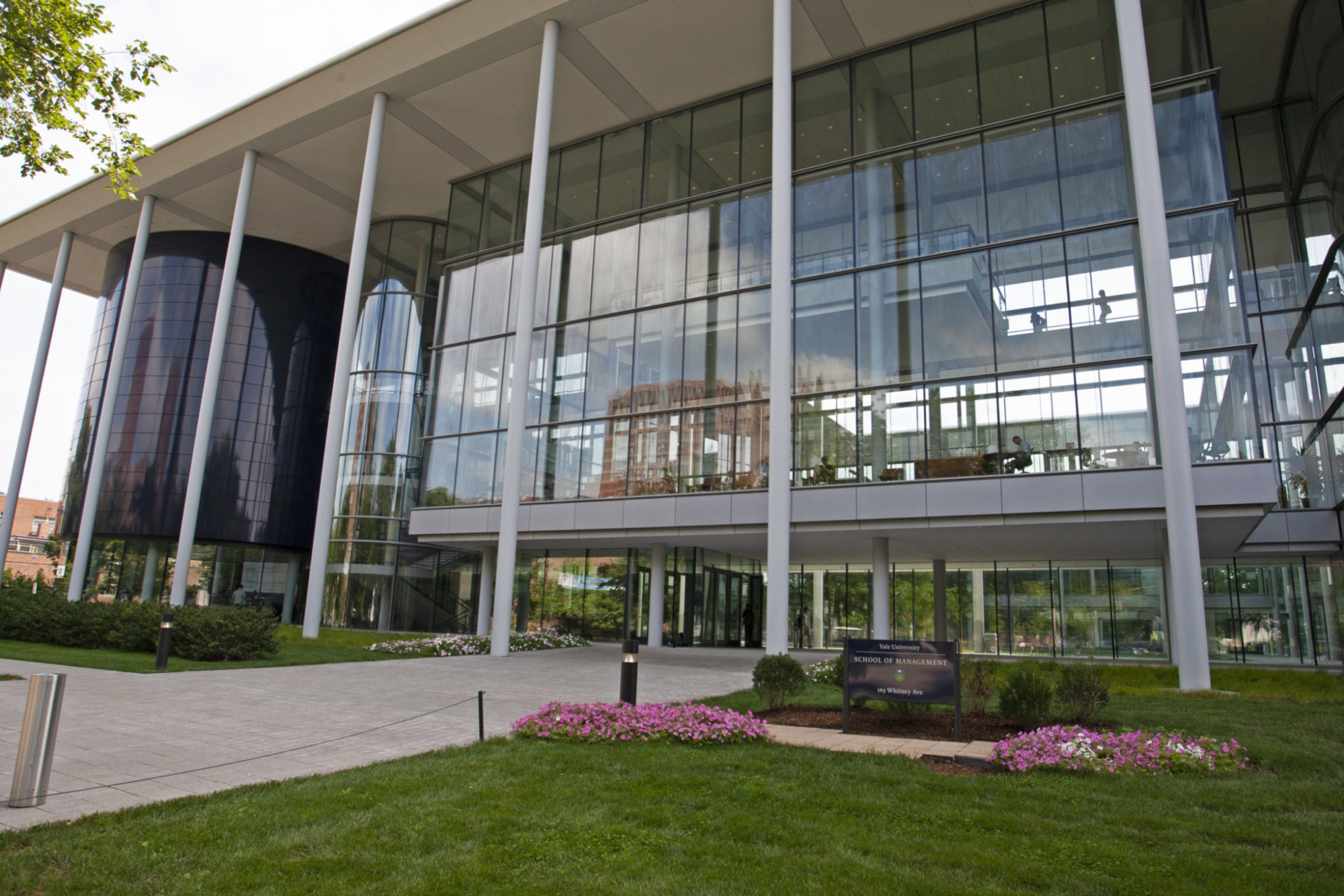
Jack Devlin, Staff Photographer
Three professors and one fellow from the Yale School of Management were cited by Congress in a report titled “Investment of Competition in Digital Markets” — the first of its kind in decades.
The report, released Oct. 6 by the House Judiciary Committee’s Subcommittee on Antitrust, Commercial, and Administrative Law, identifies anti-competitive behavior from Facebook, Google, Amazon and Apple. Comparing these tech giants to the oil and railroad monopolies of the Gilded Age, the report lays out recommendations for legislative action that could break the dominant hold of the firms on the innovation and technology sectors.
“This is the first time in decades that there’s been a substantive report on antitrust,” Theodore Nierenberg Professor of Economics Fiona Scott Morton said. “What the report shows is that there is bipartisan concern for the power that these big platforms have on commerce in the United States.”
The House subcommittee cites research from Yale SOM faculty, including associate professor of economics Florian Ederer and assistant professor of finance Song Ma. The report also features testimony and research from Scott Morton. She and the other cited researchers expressed optimism about the landmark report’s role in drawing attention to antitrust issues.
The congressional report cites research on “killer acquisitions,” a term coined by professors Ederer and Ma referring to purchases of small companies by larger corporations with the goal of quashing potential competition. One possible example cited by the report was Facebook’s acquisitions of Instagram in 2012 and WhatsApp in 2014.
“We’ve identified a type of acquisition that was not paid attention to, but actually hurts innovation and the entrepreneurial sector,” Ma said.
According to Scott Morton, current U.S. antitrust laws do not adequately address killer acquisitions and other exploitative conduct in the digital economy.
Though Ederer and Ma’s research is based on data from the pharmaceutical industry, its theoretical conclusions could be extended to other industries, Ederer said.
“The general idea, the theory, applies just as much to tech as it does to any other industry,” Ederer said. “I’m excited to see how policy on antitrust continues to develop in the coming years.”
The interest among Yale faculty and students in antitrust policy resulted in the Big Tech & Antitrust Conference, held on Oct. 3 and Oct. 4 at the Yale Law School. U.S. Rep. David Cicilline, D-RI, who chairs the committee that authored the report, was a keynote speaker at the event. The conference was also co-sponsored by the Thurman Arnold Project at Yale, which was launched by Scott Morton last year. TAP@Yale aims to bring interested students and faculty together to research economic competition, especially in regard to the digital sector.
Though optimistic about the advancements the report could lead to, Ma told the News that more research needs to be conducted by the SOM and other institutions before specific policy action can be taken.
“I think we’ve identified the problem, but I’m not sure that we’ve identified the solution,” Ma said. “There needs to be more healthy debate, rather than going into policy too quickly.”
Though TAP@Yale currently involves only graduate students, undergraduates are invited to apply. Scott Morton encouraged students to email and express their interest.
In 1998, Microsoft lost its monopoly on personal computer operating system software in the case United States vs. Microsoft Corp.
Isaac Yu | isaac.yu@yale.edu







